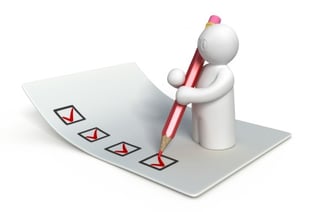
We've heard so many spouses say, “I'm at the end of my rope; I can't do this anymore. Can you tell me how to help my spouse with addiction?”
No matter how many times we have these conversations, that is a powerful moment to witness. Sometimes, the act of owning up to the truth and requesting addiction help is the hardest part of the whole recovery process.
Recognizing the reality of your spouse's addiction may be the first step in your journey. But recovering from substance abuse will require your spouse to come to the same realization...on their own and on their own terms.
There is Hope For An Addicted Spouse
Let's start by saying there is hope. We have infinitely more resources and knowledge about addiction today than just a few years ago. And there are abundant stories of couples who have persevered and come out the other side better and stronger.
But understand, it can be a long road, and it helps to know about some common pitfalls to avoid along the way. In this post, we'll discuss specific do's and don’t's for dealing with addiction.
4 Things Not To Do For An Addicted Spouse
When your spouse is struggling with addiction, it's easy to slip into believing that you need to save the day. You only want the best for them, but those good intentions can tip over into controlling, unhelpful behavior if you're not careful.
So let's talk about what NOT to do when you're helping an addict:
- Don’t check up on your spouse and monitor their drug use.
This puts you in a parental role, and you want to respect your spouse and relate to them as a peer even when you're frustrated and angry about their behavior. - Don’t offer unsolicited advice.
All of those advice-column clichés are true: giving unsolicited advice is the fastest way to create resistance within another person. Even when coaching, advising, and preaching is well-intentioned, it can actually prevent the very change you'd like to see happen. - Don’t try to fix the problem.
Though your spouse's addiction is a problem that certainly affects you, it doesn't actually belong to you. The problem belongs to your spouse, and only your spouse can fix it. You cannot control their behavior, only your own response to it. - Don’t criticize your spouse or try to manipulate them into changing.
Harsh words and coercive actions don't promote positive change. Rather, they trigger feelings of shame, which feeds the addict's desire to drug and numb out.
All of these behaviors are examples of codependency, which Shawn Meghan Burn, Ph.D. defines as “a dysfunctional helping relationship where one person supports or enables the other person’s addiction, poor mental health, immaturity, irresponsibility, or under-achievement.”
It's common for spouses of addicts to struggle in this area.
Are You in a Codependent Relationship?
What does codependency look like in real time? Here are a few examples.
- Making excuses and lying to cover up your spouse's addiction. You might be calling your loved one's workplace and saying that they have the flu when they're actually high.
- Overachieving so that your spouse can continue to under-function. Perhaps you've taken on more and more household responsibilities in order to compensate for your spouse's lack of participation.
- Revolving your life around your spouse's needs and desires (and growing increasingly resentful because of it). Maybe you've given up much needed rest, exercise, or connection time in order to take care of your hungover spouse.
The result of ongoing codependency is deep internal depletion. Fortunately, you can restore and nourish yourself by making different choices.
3 Things You Can Do to Help An Addicted Spouse
The good news is that you're not powerless. There are plenty of healthy choices that you can make in response to your spouse's addiction. However, we'll give you fair warning: this is probably not what you want to hear!
 Most likely, you've been working hard to try and get your spouse to change. We're encouraging you to try a different path, one that focuses on setting loving, healthy boundaries for yourself.
Most likely, you've been working hard to try and get your spouse to change. We're encouraging you to try a different path, one that focuses on setting loving, healthy boundaries for yourself.
When you're tempted to start criticizing and controlling, try these behaviors instead:
- Do let go.
Recognize that attempting to control your spouse's addiction only makes it worse. - Do let your spouse experience the consequences of their actions.
When their boss calls to ask about an absence from work, hand them the phone rather than making excuses. Support your loved one – especially when it comes to finding treatment – but don't slide back into enabling behavior. - Do get help for codependency.
When the desire for control gets overwhelming – and it will! – seek out your own support. Make sure you are taking care of yourself and receive counseling. Going it alone won't help, but getting plugged into healthy relationships will.
Just for today, decide not to lie and say yes when you mean no. Let go of trying to fix your spouse's problems and focus on staying in your own integrity.
Next Steps For You and Your Addicted Spouse
If your spouse is struggling with addiction issues, you can support them by taking concrete steps to find support for your family. Do your research and learn about treatment options.
For example, if you’re trying to decide between inpatient and outpatient treatment or therapy, you can check out our blog post Outpatient Treatment vs. Inpatient Treatment: An Honest Comparison.
That said, seeking help for a spouse’s addiction can trigger feelings of fear and overwhelm within you. If that’s true for you, take pause during stressful moments and ask yourself this simple question from recovering alcoholic and spiritual teacher Byron Katie: “Whose business am I in?” Conserve your energy (and your sanity!) by staying in your own business.
You can support your spouse while acknowledging the limits of what you can do for them. You can encourage their recovery while remembering that it is their journey. You can love your spouse while taking good care of yourself.
It’s not easy, but you have the strength to do it.
Getting Additional Help
If you or someone you love is in need of treatment, contact us, or learn more by downloading our Free eBook: Supporting a Loved One Struggling with Addiction:
Support Loved Ones E-Book Download



